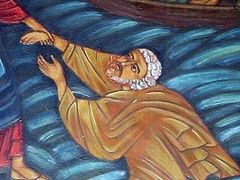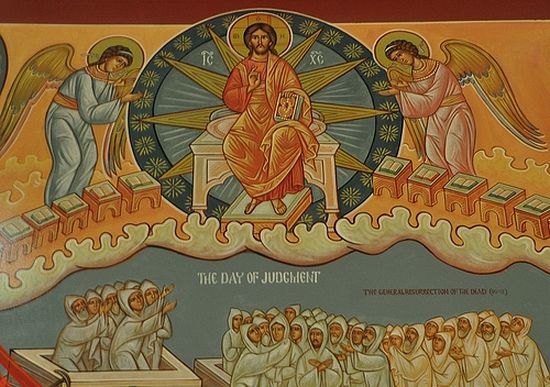
On the 3rd of the Pre-Lenten Sundays, we read the Gospel lesson of Matthew 25:31-46, the Last Judgment. It is a surprising description of the Last Judgment – no mention of sins. The Judgment is based on our having been charitable to others, or having failed to do so. No mention of keeping Torah or Tradition; nothing said about keeping Lent strictly or any spiritual discipline. We are judged on whether we loved Christ’s least brothers and sisters, and through them loved Christ. The Judgment according to Christ is not based on our adherence to religious practices, but rather on our willingness to love others in whom we don’t see Christ.
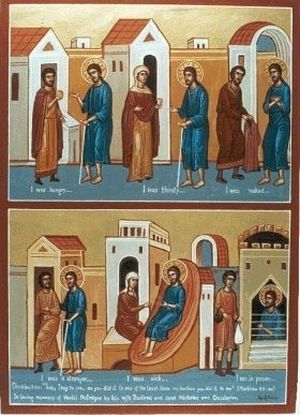
Then the righteous will answer him, ‘Lord, when did we see thee hungry and feed thee, or thirsty and give thee drink? And when did we see thee a stranger and welcome thee, or naked and clothe thee? And when did we see thee sick or in prison and visit thee?’ And the King will answer them, ‘Truly, I say to you, as you did it to one of the least of these my brethren, you did it to me.’ Then he will say to those at his left hand, ‘Depart from me, you cursed, into the eternal fire prepared for the devil and his angels; for I was hungry and you gave me no food, I was thirsty and you gave me no drink, I was a stranger and you did not welcome me, naked and you did not clothe me, sick and in prison and you did not visit me.’ Then they also will answer, ‘Lord, when did we see thee hungry or thirsty or a stranger or naked or sick or in prison, and did not minister to thee?’ Then he will answer them, ‘Truly, I say to you, as you did it not to one of the least of these, you did it not to me.’ And they will go away into eternal punishment, but the righteous into eternal life.”
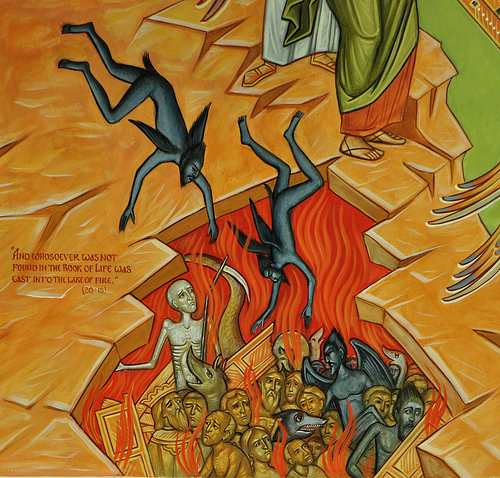
St. Gregory the Great comments:
“The gospel tells us that the Lord appeared to two disciples while they were walking on the road. Even though they did not believe in him, they were talking about him. He did not appear to them in a form they could recognize: as he was to the eyes of their hearts, a stranger, so was he to their bodily eyes, Inwardly they were full of love and of doubt. The Lord was outwardly present to them, but he did not reveal to them who he was. He showed himself to them as they were talking about him, but because of their doubts he hid the appearance that would allow them to recognize him. As they walked along, he did indeed talk with them, reproving the hardness of their understanding, and opening to them the mysteries of the Scriptures concerning himself. Yet, because as an object of faith he was still a stranger to their hearts, he made a pretence of going on farther. Truth was not acting deceitfully here. He was only showing himself to them in accordance with their thoughts about him. They had to be tested as to whether those who did not as yet love him as God were at least able to love him as a stranger. Because those with whom Truth was walking couldn’t be completely alien to love, they invited him, a stranger, to be their guest. They set the table, brought food, and in the breaking of bread they recognized the God they did not know when he was explaining the Scriptures to them.
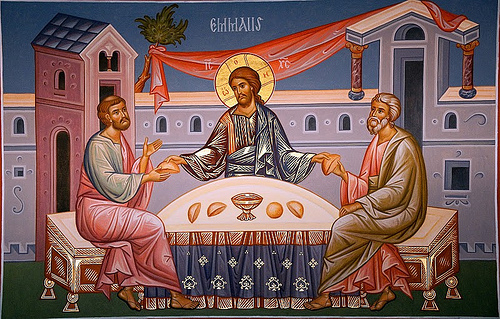
They were not enlightened by hearing God’s commandments, but by their own actions, for it is written:It is not hearers of the law who are righteous before God, but doers of the law will be made righteous. Let those who want to understand what they have heard be quick to fulfill in action what they have already been able to understand. The disciples did not recognize their Lord when he was speaking; the Lord allowed himself to be recognized as he was being fed.
My friends, love hospitality, love the works of mercy. Paul said: Let the love of the brotherhood remain, and do not forget hospitality; it was by this that some have been made acceptable, having entertained angels hospitably; and Peter told us to be hospitable to one another, without complaints; and Truth himself said: I needed hospitality, and you welcomed me. And yet often we feel no inclination to offer the gift of hospitality. But consider, my friends, how great this virtue of hospitality is! Receive Christ at your tables, so that he will receive you at the eternal banquet. Offer hospitality now to Christ the stranger, so that at the judgement you will not be a stranger but he will accept you into his kingdom as one he knows.” (Gregory the Great, Be Friends of God, pp 62-64)
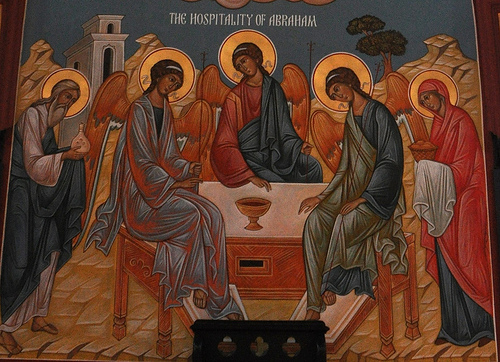 Entertaining angels, unaware
Entertaining angels, unaware Whatever we may be eating or fasting from, it is always the season for hospitality and charity. Whether we are eating or fasting, it is always the time to be generously charitable and hospitable to others. Without hospitality and charity, our fasting from food is vapid and void. Filling our hearts with God’s love is the goal of Lent, not just emptying our plates of food.


